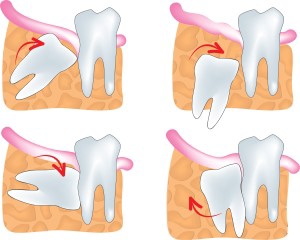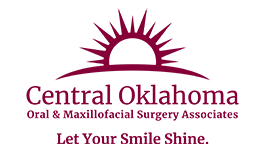24 Apr Wisdom Teeth Removal: Stop Health Problems Before They Start
 Have you ever wondered why patients have their wisdom teeth removed even when those teeth aren’t causing trouble? Unfortunately, impacted wisdom teeth can cause a variety of oral health issues at any time. Therefore, many patients opt to have these potentially problematic teeth extracted as a preventive measure before any problems develop.
Have you ever wondered why patients have their wisdom teeth removed even when those teeth aren’t causing trouble? Unfortunately, impacted wisdom teeth can cause a variety of oral health issues at any time. Therefore, many patients opt to have these potentially problematic teeth extracted as a preventive measure before any problems develop.
Your wisdom teeth are the largest in your mouth, and human jaws have become smaller as we have evolved. Therefore, many patients have jaws that are unable to accommodate the wisdom teeth, which in turn become impacted.
Impacted teeth are more likely to have problems such as cysts or tumors. It’s hardest to keep the rear portion of the jaw clean, so an impacted wisdom tooth may be exposed to excess bacteria, which can cause decay or even an abscess. Additionally, impacted teeth will continue to try to emerge, and they may knock the other teeth out of alignment after they do so.
Accordingly, patients may be able to eliminate those concerns before they even occur by having impacted wisdom teeth removed.
Removing impacted teeth tends to be a more complex procedure than a simple extraction, so an oral surgeon will usually provide this treatment. The surgeon is capable of surgically removing any surrounding bone as needed before extracting the wisdom teeth.
It is usually recommended that patients who intend to have their third molars removed electively do so before they reach their mid-twenties. Both the procedure and the recovery are easier in younger patients.
Some patients may have reservations about undergoing oral surgery as a preventive measure when no symptoms are present, and you should be sure to discuss any such concerns in detail with your oral surgeon. The surgeon will educate you on the various risks and benefits of the procedure, in addition to providing you with detailed pre- and post-operative instructions.
We encourage patients who still have their wisdom teeth to call our office to schedule an evaluation that will educate them on treatment options and whether extraction is recommended in their cases. For more information, contact Central Oklahoma Oral & Maxillofacial Surgery Associates at 405-624-1300.
